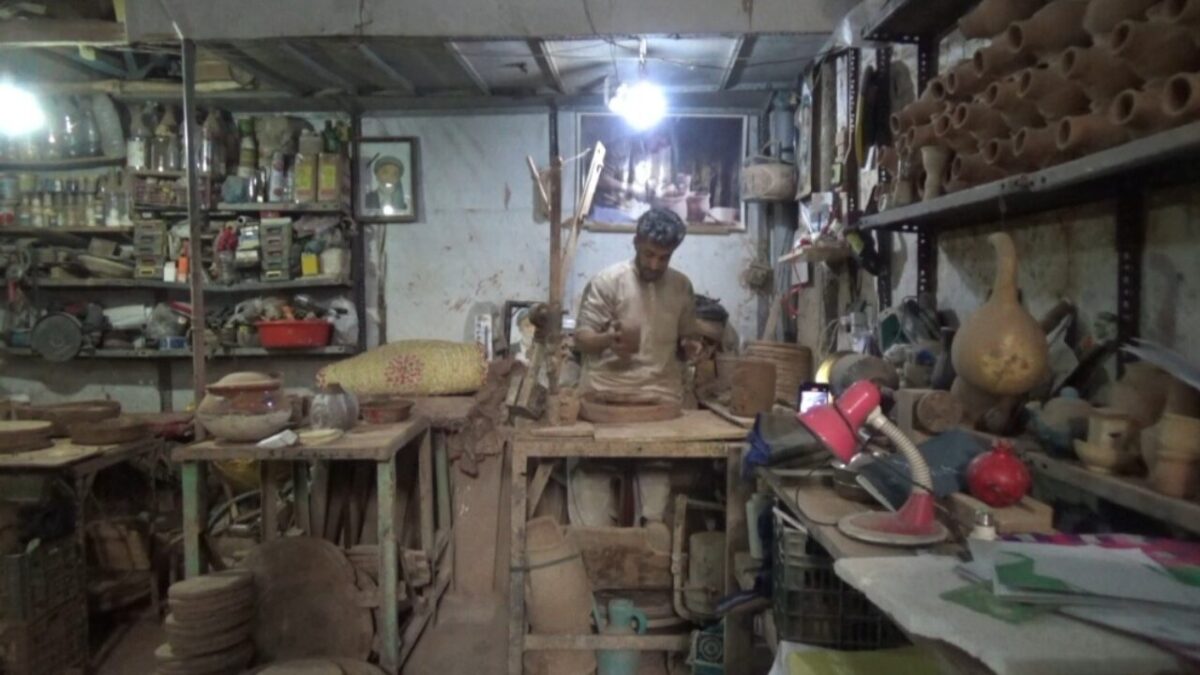HERAT, Afghanistan — Once a thriving craft passed down through generations, Herat’s ancient pottery tradition is teetering on the brink of extinction.
Once home to dozens of bustling pottery workshops producing decorative and functional wares, Herat now has just one active studio struggling to keep the craft alive. Artists and local observers blame government neglect and administrative red tape for the decline of a centuries-old industry that once helped define the cultural identity of the historic western city.
“In the past, Herat was full of workshops, full of creativity,” said Hikmatullah Gholami, one of the last remaining potters in the city. “Now, we are down to one workshop. The officials don’t care, and bureaucracy has stifled any chance to revive this art.”
Gholami, who has worked as a potter for 25 years, turns earth and fire into intricate pottery — bowls, vases, and traditional Herati designs — in his modest studio. But despite the beauty of his work and the heritage it represents, he says navigating government processes has become nearly impossible.
“I went to the industrial park to request land, but they told me, ‘First build the road, then you can extract the soil.’ How can we know if the soil is even usable without testing it first?” Gholami said, expressing frustration with what he described as a broken system.
Herat’s pottery tradition, once known for its innovation and artistry, now struggles with limited sales, declining interest, and lack of institutional support. Decorative wares that once graced homes and markets across the region now sit unsold, as public interest wanes and younger generations turn away from the craft.
In a city renowned for its cultural heritage — from Persian miniatures to tilework — the quiet fading of its pottery tradition marks the loss of more than just a livelihood. For Gholami and the few who remain, it is the slow erasure of a living history.
“We’re not just shaping clay,” he said. “We’re shaping identity. And that identity is being forgotten.”





